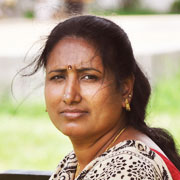
'Mahiti' means ‘information’ in many Indian languages. Since 2002 Mahiti has been building Information and Communication Technology (ICT) tools and solutions for the social sector to enhance programme quality and the impact on communities.
Known for solutions appropriate for realisation of MDGs (Millennium Development Goals), through Partners in Health, HIV and AIDS, Education, Gender Equality and Economic Security especially in Agriculture, Mahiti is committed to engaging with the newly formulated SDGs (Sustainable Development Goals) where 169 Targets are listed under 17 Goals.
Mahiti’s solutions are backed by a multi-talented team of 50+ creative minds, innovative IT engineers and domain experts at its development centre in Bangalore.
As one of the few technology companies to focus on the social sector, Mahiti empowers governments, international development agencies, civil society organisations and disadvantaged communities in remote locations to effectively use technology. Mahiti has built and deployed multi-platform, multi-lingual and multi-media-enabled web/ intranet/ kiosk/ mobile applications across five continents.
What we do differently
Mahiti specializes in understanding the unique challenges of social development organizations and mentors them to generate, analyse and manage data to effect high quality performance. Mahiti's design and development philosophy is simple and straight-forward: create real, unique and compelling work. Mahiti's purpose lies in developing innovative technological solutions for the sector and continually striving to create new benchmarks in the way technology supports social change.
Why Mahiti?
Because Mahiti is characterised by its
- Social Impact Focus;
- Technology Leadership;
- Global Reach; and,
- 'Partner First' Approach;
Sustainable Development Goals (SDGs) and Agenda 2030
The role of ICT as a key driver of sustainable development is clear. 3.2 billion people (43% of the world population) are online today, with 7.1 million mobile-cellular subscriptions and over 95% of population covered by a mobile-cellular signal (UN Blog).
To quote the UN Secretary General Ban Ki-moon, “We must do everything in our power to increase access to ICTs …, ... This will empower millions of people and enable us to meet our development goals.” While Mahiti’s work aligns with several of the SDGs due to the universally accepted role of technology in development, a few key SDGs either specifically mention or imply the importance of the application of IT and ICT tools as a key non-negotiable to achieve certain targets - viz. SDG 02 on food security, nutrition and sustainable agriculture whose targets almost entirely focus on sustainable agriculture, where technology is a critical catalyst; SDG 03 on health and well-being where Mahiti has developed innovative end-to-end solutions for Big Data Analysis; SDG 04 on inclusive and equitable quality education where Mahiti's cloud-based solutions have enabled the last-mile reach; SDG 5b that urges to 'Enhance the use of enabling technology' in particular information and communications technology, to promote the 'empowerment of women' and SDG 09 one of whose listed targets is to 'Significantly increase access to information and communications technology .....by 2020'. Know more
It is imperative to mention here Mahiti has already been partnering with social development organisations in UN-prioritized Low Income Countries like Afghanistan, Myanmar, Nepal, Kenya and Tanzania. Even within India and other Middle Income Countries, Mahiti’s partners work among the most excluded and vulnerable communities in both rural and urban locations.
Vision, Mission & Values
Vision - Globally one billion lives positively impacted by 2030 through effective use of technology;
Mission - To create and deploy technology to enhance Efficiency, Effectiveness and Scalability of social development programs;
Mahiti's passion is to:
- Harness technology for Social Change;
- Enable Changemakers to Scale Impact;
- Build a team that is Empathetic, Diverse and Entrepreneurial;
Values
- Customer focus;
- Empathy;
- Innovation;
- Integrity;
- Quality Assurance;
- Transparency;











